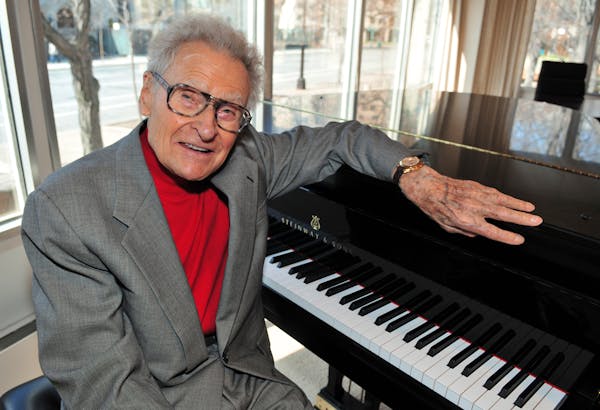At age 7, walking in his native city of Lwow, Poland, Stanislaw Skrowaczewski suddenly was transfixed by the music of Anton Bruckner, coming from an open window nearby. "I was in a trance; I was in heaven," Skrowaczewski told biographer Frederick Harris. "Since that moment I was fascinated with Bruckner."
The fascination endures. This week the 88-year-old Skrowaczewski, music director of the Minnesota Orchestra from 1960 to 1979 and a Wayzata resident since 1963, leads the orchestra in Bruckner's overwhelming Symphony No. 8, the Austrian composer's last completed work in the genre and, for most devotees, his supreme creation -- this despite a daunting welter of revisions and redactions (the so-called "Bruckner problem").
The 80-minute Eighth, to borrow a phrase, is greater than any performance of it; the music breeds humility in its interpreters. But that said, it's hard to imagine an account more passionate or more thoughtful than Skrowaczewski's. (Is there another conductor who integrates the seemingly incongruous elements of Bruckner's style -- Schubert's lyricism and Wagner's orchestral timbres, learned counterpoint and 19th century monumentality -- so completely?) Conducting without a score, he was master of the work's global design and of its finest detail.
Music unfolds in time, but the Eighth has one foot in eternity, at least with Skrowaczewski at the helm. "When I conduct the Eighth Symphony," the conductor told an Australian interviewer (as quoted by Harris) in 1994, "it seems to me that it is already over in a moment. ... It is like a religious meditation or a dream: You lose the notion of time."
It's one thing for a musician to feel time dissolving and quite another to transmit that feeling to an audience, as Skrowaczewski did Thursday morning. And amid the colossal climaxes and general massiveness, the conductor was unfailingly attentive to the symphony's intimate side -- a vein most conspicuous in the bewitching Trio of the second movement and in the sublime third.
The Minnesota Orchestra, alas, doesn't play Bruckner often enough to qualify as one of the world's great Bruckner orchestras (a special breed). Yet on Thursday it managed to sound like one -- a tribute to Skrowaczewski's incandescent leadership. The brass was stirring; the strings glowed. I've heard nothing more beautiful than the protracted sigh at the Adagio's end.
Music-making on this exalted plane comes our way but rarely. Orchestra Hall, distressingly underpopulated Thursday, ought to be full on Friday evening.

Minnesota Sports Hall of Fame: A class-by-class list of all members

This retired journalist changed professional wrestling from Mankato

